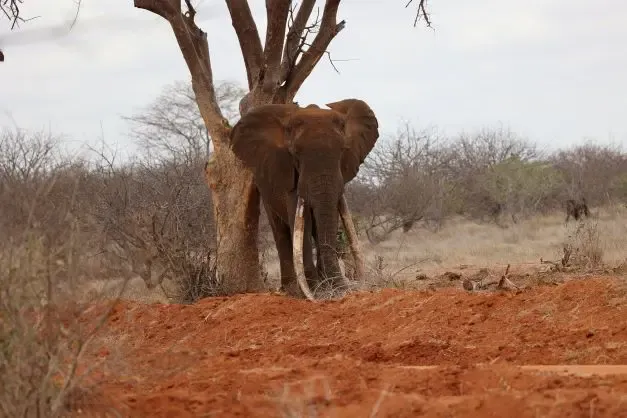Heightened Alert in TN's Valparai as Elephant Incursions Persist

Chennai, Dec 12 (NationPress) The Tamil Nadu Forest Department has released a public advisory urging residents in proximity to the forest in Valparai, Coimbatore district, to refrain from going out at night due to the escalating danger posed by wild elephants intruding into human territories.
Forest officials are actively patrolling the vicinity after three elephants, having separated from a larger 17-member herd, invaded human settlements in Valparai on Monday, resulting in injuries to several individuals.
Four people have reportedly suffered fractures to their arms and legs during these attacks and have been hospitalized at a government facility.
This incident follows the tragic death of 18-year-old S. Mukesh a few months back. Mukesh, who lived in Puthukad near Valparai, was fatally assaulted by a wild elephant while riding a two-wheeler along an estate road en route to the Sholayar Dam.
Despite being rushed to the Valparai General Hospital, he was pronounced dead upon arrival. This incident came just days after a tribal individual named Ravi was trampled by a wild elephant at the Anamalai Tiger Reserve (ATR), adjacent to Valparai.
Throughout the past year, there have been numerous occurrences of wild elephants causing destruction to property, including homes and businesses, in the Valparai area.
Forest officials attribute these hostile encounters to habitat degradation driven by invasive plant species, the loss of swamps, and alterations in land use, leading to heightened human-wildlife conflict.
As the annual elephant migration season approaches its peak in the Valparai plateau, the Tamil Nadu Forest Department, working in tandem with non-governmental organizations and local communities, aims to ensure the unobstructed movement of elephants.
However, officials caution that elephants that become separated from their herds can exhibit aggressive behavior, posing substantial risks to human safety and property.
Currently, close to 100 elephants are traversing plantation areas on the plateau, encompassing tea, coffee, and cardamom estates, as well as swamps, deserted fields, eucalyptus groves, and fragmented forests within these estates.
This figure is anticipated to increase as the migration reaches its peak between January and February. Residents and estate workers in Valparai, who are familiar with the annual elephant migration from Kerala, have developed strategies to reduce adverse interactions with these animals.
The migration, which commences in September, sees elephants navigating the intricate landscape of Valparai’s estates and fragmented forests until its conclusion in March.
Forest officials highlight that various factors including rainfall, grass availability, and human activities influence the migration patterns of elephants.
Manoharan, a resident of Valparai, recognized the Forest Department’s efforts in promoting awareness regarding conflict reduction with wild elephants, stressing the necessity of coexistence during the migration season.





